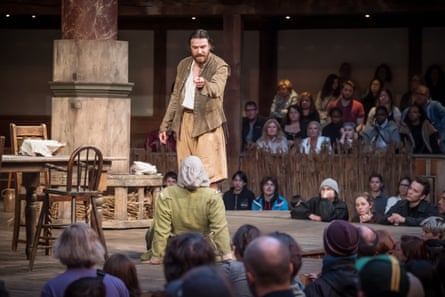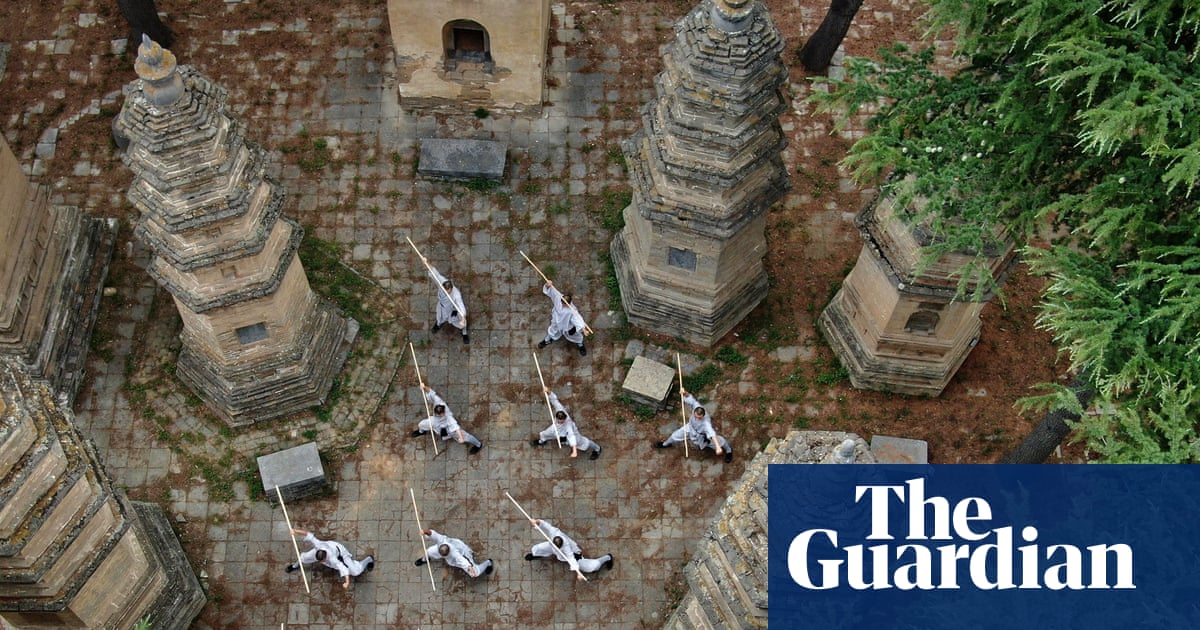There is never a time when Arthur Miller’s play about a world turned upside down by collective hysteria and scapegoating does not bear some resonance. But the present moment – of dangerously disputed truths and lies – is an especially pertinent moment to revisit Miller’s analogy between accusations of witchcraft and McCarthyist terror.
This production is faithful to the original 17th-century setting, amid the heat and panic of the Salem witch trials. There is period dress: bonnets for women, pointed hats for men and ribbons for the judges, along with a range of broad British accents for these original American pilgrims. But director Ola Ince brings a quietly radical touch in the form of humour – more absurdist than comic, with accusations of flying girls and demon possession taking on preposterous tones. The men, mostly the judges of the last two acts, appear bumbling, like yokels arguing over the fate of their chattel at a country fair. Deputy Governor Danforth (Gareth Snook) is particularly clownish, though no less awful for it.
A few songs by composer Renell Shaw give the town’s girls and women a greater voice in an otherwise dutiful revival which flies in the first half but slows to a trudge by the third act. Maybe because of the laughter, there is also less creepiness to the band of girls who accuse the adults of satanism, and less terror to the court scenes, too. You see the panicked calculation in Tituba (Sarah Merrifield)’s original, forced “confession” but you do not feel her visceral fear. The note of absurdism makes it less terrifying, more ridiculous.

Still, there is some fine acting from Gavin Drea as John Proctor and Hannah Saxby as his sometime lover, Abigail Williams, who burns with the young, single-minded passion of the spurned. The showdowns in court, with the judges and those between John and Elizabeth Proctor (the a played compellingly by Phoebe Pryce), come weighted with emotion and tragedy. It is also painful to see Mary Warren (Bethany Wooding) as she tries to explain the peer pressure that made her lie in court and be disbelieved by the men around her.
Amelia Jane Hankin’s set design has a Quaker bareness, pious and unadorned, with wooden bedsteads and big kitchen tables. There is an almost painterly quality to some scenes with a top window on the stage featuring a tableau of the accused: women standing as still as statues, waiting for their fate to be decided by the men in power.
It is a shame the pace slows to such a degree (performed at three hours on press night). Even so, discretely powerful scenes go some way to bringing the tension back, and as the first Miller play to be staged at the Globe it is a powerfully pertinent choice.
-
At Shakespeare’s Globe, London, until 12 July

 3 months ago
65
3 months ago
65

















































